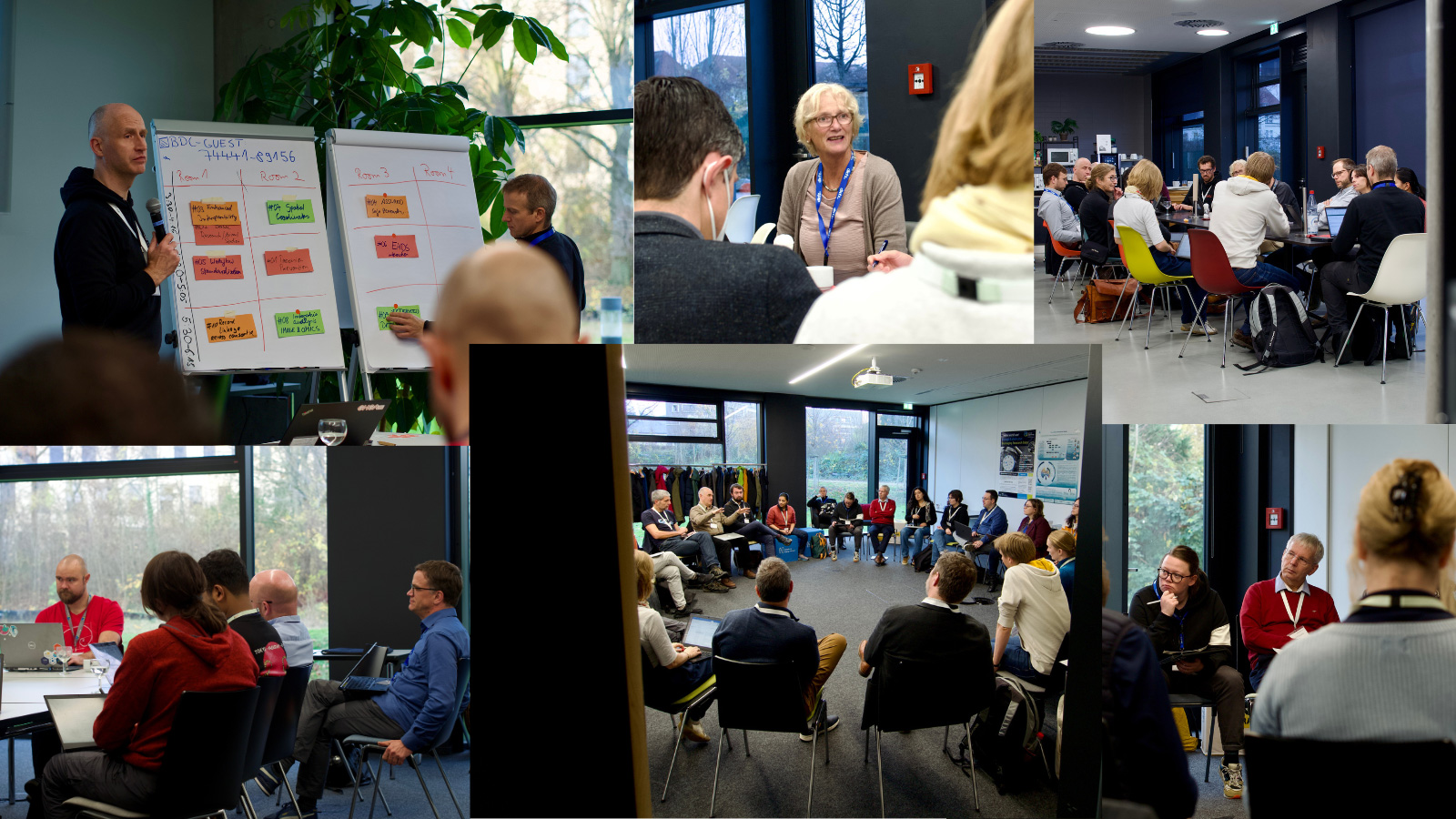The workshop opened with presentations by speakers from each of the consortia, including the NFDI4Health spokesperson Juliane Fluck, showcasing their individual approaches to managing biomedical data. Topics included enhancing data interoperability, addressing legal and ethical considerations, developing robust infrastructure, and empowering researchers through training. These insights set the stage for deeper discussions on common challenges and opportunities for collective action in each of these fields.
In the afternoon, participants delved into specific use cases during an interactive BarCamp session. Discussions ranged from precision prevention, standardised bioinformatics workflows and the European Health Data Space (EHDS) to enhanced interoperability and federated data access. These sessions highlighted the value of cross-consortium cooperation in finding innovative, FAIR-compliant solutions tailored to the complexities of biomedical data management. Importantly, first steps were taken to establish frameworks for ongoing collaboration, ensuring that these initial conversations will evolve into long-term, sustainable interactions across consortia.
On the second day, the results of each BarCamp session were presented and discussed. This allowed participants to share the progress and insights developed during the overlapping sessions, fostering a comprehensive understanding of each topic’s evolution. It was an opportunity for all attendees to see how ideas from different groups aligned, diverged, and ultimately contributed to a cohesive strategy for future collaboration.
By working together, these five consortia are building a more cohesive and integrated biomedical data ecosystem. This workshop marks a significant step towards stronger collaboration, paving the way for more effective data management practices that benefit the entire research community—from the community, for the community.
 English
English  Deutsch
Deutsch 
